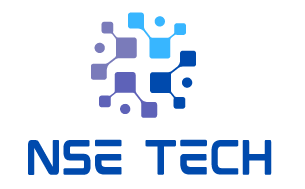In today’s data-driven world, businesses generate and handle vast amounts of information daily. Efficiently managing this data is crucial for maintaining operational efficiency, ensuring security, and supporting growth. Managed data storage solutions offer a comprehensive approach to storing, accessing, and securing data, providing numerous benefits to businesses of all sizes. Here’s how managed data storage can transform your business operations.
What is Managed Data Storage?
Managed data storage refers to outsourcing the management of data storage systems to a third-party service provider. These providers offer various services, including data backup, recovery, storage optimization, and security, ensuring that your data is always accessible, secure, and efficiently managed. By leveraging the expertise and infrastructure of managed storage providers, businesses can focus on their core operations while enjoying the benefits of a robust data storage system.
Key Benefits of Managed Data Storage
1. Enhanced Data Security
Security is a top priority for any business handling sensitive information. Managed data storage providers implement advanced security measures, including encryption, access controls, and regular security audits, to protect your data from breaches and unauthorized access. These providers also stay up-to-date with the latest security threats and compliance requirements, ensuring that your data remains secure and compliant with industry standards.
2. Improved Data Accessibility
With managed data storage, your data is stored in a centralized system, making it easily accessible from anywhere at any time. This is particularly beneficial for businesses with remote teams or multiple locations. Managed storage solutions also provide robust data retrieval systems, ensuring that you can quickly access the information you need without delays.
3. Cost Efficiency
Investing in and maintaining an in-house data storage infrastructure can be costly and resource-intensive. Managed data storage eliminates the need for significant capital expenditure on hardware and software, as well as ongoing maintenance costs. Instead, businesses can opt for a scalable, subscription-based model, paying only for the storage capacity they need. This approach reduces overall IT costs and allows for better budget management.
4. Scalability
As your business grows, so do your data storage needs. Managed data storage solutions offer the flexibility to scale your storage capacity up or down based on your requirements. This scalability ensures that you always have enough storage space without the need for significant upfront investments or over-provisioning.
5. Reliable Data Backup and Recovery
Data loss can be catastrophic for any business. Managed data storage providers offer robust backup and disaster recovery solutions to protect your data from accidental deletion, hardware failures, or cyberattacks. These providers regularly back up your data and store it in multiple locations, ensuring that you can quickly recover your information in the event of a data loss incident.
6. Expert Management and Support
Managed data storage providers have teams of experts who specialize in data management. These professionals monitor your storage systems around the clock, ensuring optimal performance and quickly addressing any issues that arise. This level of expertise and support frees up your internal IT team to focus on more strategic initiatives.
7. Compliance and Regulatory Support
Many industries are subject to strict data storage and management regulations. Managed data storage providers are well-versed in these compliance requirements and can help ensure that your data storage practices meet all relevant standards. This reduces the risk of regulatory penalties and helps maintain your business’s reputation.
FAQs about Managed Data Storage
1. What types of data can be stored with managed data storage solutions? Managed data storage solutions can handle various types of data, including documents, emails, databases, multimedia files, and application data. They are designed to accommodate the diverse storage needs of businesses across different industries.
2. How do managed data storage providers ensure data security? Managed data storage providers implement multiple layers of security, including data encryption, secure access controls, regular security audits, and compliance with industry standards. They also stay updated on the latest security threats and implement measures to protect against them.
3. Can managed data storage solutions be customized to fit my business needs? Yes, managed data storage solutions are highly customizable. Providers offer scalable storage options and can tailor their services to meet your specific data management requirements, ensuring that you get the right level of support and storage capacity.
4. What happens if there is a data loss incident? In the event of a data loss incident, managed data storage providers have robust backup and disaster recovery solutions in place. They regularly back up your data and store it in multiple locations, allowing for quick and efficient data recovery.
5. How do I choose the right managed data storage provider for my business? When choosing a managed data storage provider, consider factors such as their experience, security measures, scalability options, compliance support, and customer service. It’s also helpful to read reviews and ask for references to ensure you choose a provider that meets your business’s needs.
Book A Free Consultation
Managed data storage offers a comprehensive and efficient solution for businesses looking to optimize their data management practices. From enhanced security and accessibility to cost efficiency and scalability, the benefits of managed data storage are clear. By partnering with a reliable managed data storage provider, businesses can ensure their data is secure, accessible, and efficiently managed, allowing them to focus on growth and innovation.
Ready to enhance your data management strategy with managed data storage? Contact NSE Tech today to learn how we can help you secure, manage, and optimize your business data.


